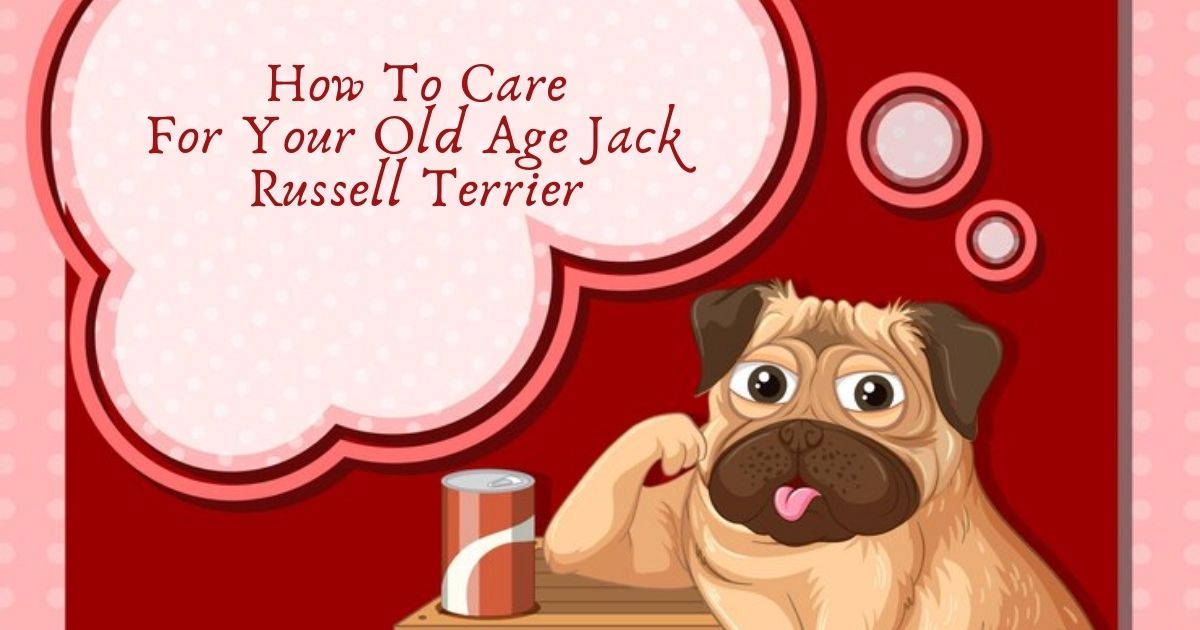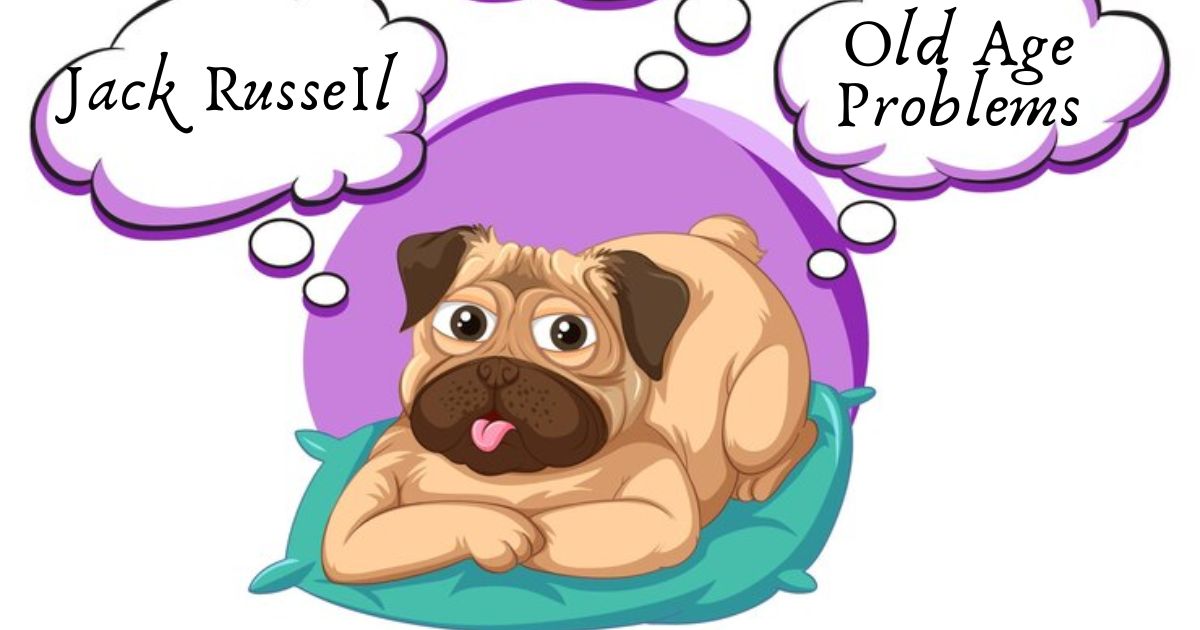As our beloved Jack Russell Terriers enter their golden years, they may face a series of age-related challenges that can impact their quality of life. Understanding these issues and knowing how to address them is crucial for any pet owner. This comprehensive guide outlines the 15 most frequently occurring problems in aging Jack Russells, offering supportive care advice to ensure these spirited little dogs continue to thrive in their senior years. From common health issues like arthritis and dental problems to behavioral changes such as increased anxiety, this article provides a roadmap for navigating the twilight years of your furry friend with confidence and compassion.
Jack Russell Old Age Problems
1) Constipation
As Jack Russells age, their digestive systems often become less efficient, leading to constipation. A combination of dietary adjustments, including high-fiber foods and plenty of fresh water, alongside regular, gentle exercise can significantly alleviate this issue. Veterinary advice might also suggest stool softeners or other medications as part of the treatment plan.
2) Fleas
Senior Jack Russells may become more susceptible to fleas due to a weakened immune system. It’s imperative to maintain a strict flea control regimen using vet-recommended treatments. Regular grooming and cleaning of bedding can also help prevent infestations that can lead to discomfort and health complications.
3) Ear infections
With age, the risk of ear infections in Jack Russells may increase, often due to decreased immune function or lack of regular ear cleaning. Symptoms include scratching, head shaking, and odor. Regular checks and cleaning, alongside prompt veterinary treatment, can manage this problem effectively.
4) Obesity
Obesity is a common concern in older Jack Russells, as their metabolism slows down. It can exacerbate joint issues, diabetes, and other health problems. A balanced diet tailored to their reduced energy needs and regular, moderate exercise can help manage weight effectively.
5) Coughing
Coughing in senior Jack Russells can signal heart disease, lung problems, or even a collapsing trachea. Early veterinary diagnosis and treatment are crucial to manage these conditions and improve quality of life.
6) Geriatric Problems
Geriatric problems, including cognitive dysfunction syndrome (CDS), can affect older Jack Russells, leading to disorientation and changes in sleep patterns. Supportive care, environmental adjustments, and medications prescribed by a veterinarian can help manage these symptoms.
7) Separation Anxiety
Older Jack Russells may develop separation anxiety, becoming more dependent on their owners. Ensuring a comforting, stress-free environment and gradual desensitization to being alone can alleviate anxiety.
8) Personality Changes
Personality changes, including increased irritability or aggression, can occur in senior Jack Russells. Understanding and patience, along with professional advice for behavioral management, are key to addressing these changes.
9) Lack of Exercise
A decrease in exercise can lead to various health issues for aging Jack Russells. Tailoring activities to their ability and health status, focusing on gentle, regular exercise, can support their well-being.
10) House Training Issues
Incontinence or a decline in house training discipline can be frustrating aspects of caring for an older Jack Russell. Veterinary advice to rule out medical issues, along with patience and consistent retraining, can help manage this challenge.
11) Heart Disease
Heart disease is a significant risk for elderly Jack Russells, manifesting through symptoms like coughing, fatigue, and difficulty breathing. Regular veterinary check-ups and appropriate treatment can manage heart conditions.
12) Arthritis
Arthritis is a common ailment in senior dogs, leading to pain and reduced mobility. Pain management strategies, weight control, and appropriate exercise can make a significant difference in their quality of life.
13) Vision Loss
Vision loss, whether due to cataracts or other eye conditions, can affect aging Jack Russells. Adapting the home environment to ensure safety and comfort can help them navigate this change.
14) Dental Issues
Dental problems, including gum disease and tooth loss, are prevalent in older Jack Russells. Regular dental care and veterinary check-ups are essential to prevent pain and infection.
15) Hearing Loss
Hearing loss can isolate senior Jack Russells from their environment. Learning new ways to communicate through hand signals and ensuring their safety becomes paramount.
How To Care For Your Old Age Jack Russell Terrier

Caring for an aging Jack Russell Terrier involves a holistic approach, focusing on maintaining a balanced diet, regular veterinary check-ups, and adapting the living environment to meet their changing needs. Emotional support and understanding also play a crucial role in enhancing their quality of life during these years.
At What Age Are Jack Russells Considered Seniors?
Jack Russell Terriers are generally considered to be seniors around 8-10 years of age.
At this age, most Jack Russells are no longer puppies, but they have many good years ahead of them. However, their metabolism, energy levels, and activity levels start to slow down. They may need less vigorous exercise and they start to show signs of graying fur, especially around the muzzle.
Some common signs that a Jack Russell Terrier is entering its senior years include:
- Moving more slowly or sleeping more often
- Reduced stamina and interest in high-energy activities
- More difficulty getting up, climbing stairs, jumping
- Graying fur, clouding eyes
- Weight gain if diet and activity aren’t adjusted
While every dog ages a bit differently, most vets consider 8 years and older to be a senior Jack Russell. Proper nutrition, moderate activity, vet check ups, and attention to emerging age-related issues are especially important for helping senior Jack Russell Terriers remain happy and content throughout their later years. With good care, they can still lead active lives well into their early teens.
FAQ’s
What health problems do Jack Russells have?
Common health issues in Jack Russells include patellar luxation, Legg-Calvé-Perthes disease, deafness, cataracts, and allergies. They are also prone to obesity if overfed.
What is the main cause of death in Jack Russells?
The main causes of death in Jack Russells are old age and cancer, especially mammary tumors and bone cancer. On average, Jack Russells live 12-15 years.
What is the cause of death of Jack Russell Terriers?
The top causes of death for Jack Russell Terriers are old age, cancer, and trauma from accidents. Their high energy and fearless nature makes them prone to household and outdoor accidents.
Are Jack Russells OK for seniors?
Yes, Jack Russells can make good pets for seniors if the dog is exercised properly. Their energetic nature means they need a decent daily walk or playtime. As long as this requirement is met, they are loving companions.
What is a good age for a Jack Russell?
Jack Russells are most active and energetic between 1-10 years old. By age 10-12 they start to slow down but can still make wonderful pets into their early teens. Their average lifespan is around 15 years.
What is the best food to feed a Jack Russell Terrier?
The best dog foods for Jack Russells are high in protein and low in grains. This matches their active lifestyle. Foods like Orijen, Blue Buffalo, or Taste of the Wild are good choices.
Is 17 old for Jack Russell?
Yes, 17 years old is very old age for a Jack Russell. The average lifespan for the breed is 12-15 years, so a Jack Russell that lives to be 17 is considered exceptionally long-lived. Its activity will be limited at this advanced age.
Conclusion
In conclusion, caring for a senior Jack Russell Terrier presents unique challenges but also offers unique rewards. By being proactive about their health, adapting to their changing needs, and providing plenty of love and patience, you can help your aging companion enjoy a high quality of life in their senior years. Remember, every moment with your loyal friend is precious, and with the right care, you can make their golden years truly golden. Learn more Dogs information “Top Dog Names Starting with a Q and Their Meanings“









